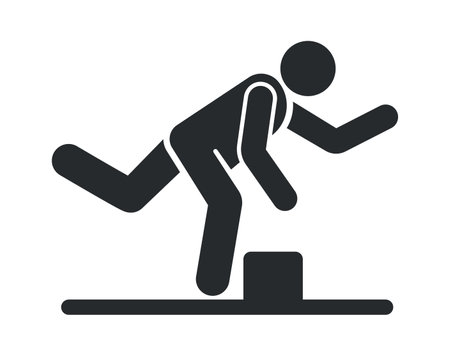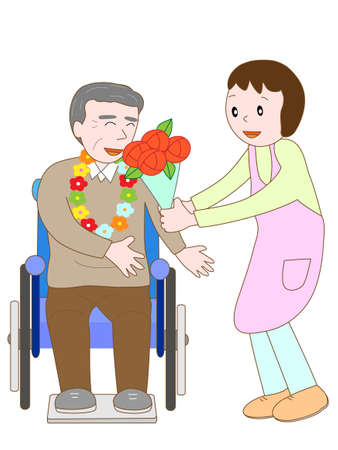Introduction: Understanding Sports Injuries in the UK Context
Sports injuries are a common and significant aspect of athletic participation in the United Kingdom, affecting individuals at all levels from grassroots to elite competition. British sports culture, deeply rooted in traditions such as football, rugby, cricket, and athletics, places a high value on physical prowess, teamwork, and resilience. This cultural emphasis means that injuries are often viewed not only as physical setbacks but also as tests of character and determination. In the UK, discussions around sports injuries frequently extend beyond the physical symptoms to include social expectations, media narratives, and community responses. While there is a growing awareness of the psychological consequences of being sidelined due to injury, traditional attitudes sometimes still promote stoicism and playing through pain. The prevalence of sports injuries varies across disciplines, with contact sports like rugby and football seeing higher rates compared to non-contact activities. Recent research and public discourse in Britain highlight an increasing recognition of the need for holistic rehabilitation approaches that address both mental and physical health. This evolving understanding reflects broader shifts within British society towards destigmatising mental health issues and fostering supportive environments for recovery.
2. The Immediate Psychological Response to Injury
In the immediate aftermath of a sports injury, British athletes commonly experience a range of emotional and cognitive reactions that can significantly influence their recovery trajectory. The initial psychological response is often shaped by the unique sporting culture in the UK, which values resilience but also recognises the mental health challenges associated with injury.
Emotional Reactions: Shock and Denial
The first response many injured athletes encounter is shock—a sense of disbelief or numbness as they process what has happened. This is frequently followed by denial, where individuals may downplay the severity of their injury or attempt to continue participating despite medical advice. Such reactions are not only typical in professional football or rugby but are also observed in grassroots sports across the country. British athletes, accustomed to a “keep calm and carry on” mentality, may initially struggle to acknowledge the full impact of their situation.
Common Emotional Responses Observed
| Emotion | Description | Prevalence in UK Sports |
|---|---|---|
| Shock | Immediate disbelief or numbness post-injury | High (Across most team and individual sports) |
| Denial | Refusal to accept the seriousness of injury | Moderate-High (Particularly in contact sports) |
| Anxiety | Worry about performance, career, and future participation | Moderate (Notable in both elite and amateur settings) |
| Frustration | Irritation due to loss of routine and competition | High (Observed widely in competitive environments) |
Cognitive Reactions: Initial Coping Strategies
Cognitively, athletes may engage in various coping strategies as they come to terms with their injury. These include seeking reassurance from coaches and medical staff, researching rehabilitation options, or mentally rehearsing a return to play. In the UK context, there is an increasing trend towards early psychological support through club welfare officers or sports psychologists, especially within larger organisations like Premier League football clubs or national governing bodies.
The Role of Sporting Environment in Shaping Coping Mechanisms
The response to injury is often influenced by the culture within British sport. Teams that foster open discussion about mental health enable more adaptive coping mechanisms such as acceptance, proactive goal-setting, and peer support. Conversely, environments that prioritise toughness over wellbeing may inadvertently reinforce maladaptive responses like suppression or avoidance.

3. Long-term Psychological Effects of Sports Injuries
The repercussions of sports injuries extend far beyond the immediate physical pain and rehabilitation period, often leading to long-term psychological effects that can significantly shape an athlete’s personal and professional life. In the UK context, the prevalence of mental health concerns such as anxiety, depression, and identity disturbances among injured athletes has been increasingly acknowledged in both academic research and community awareness initiatives.
Anxiety and Depression Among Injured Athletes
Long-term injuries frequently give rise to persistent anxiety and depressive symptoms. According to a study conducted by Mind, a leading mental health charity in the UK, approximately 40% of British athletes who have suffered severe injuries report ongoing feelings of sadness, hopelessness, or worry about their future in sport. This is often exacerbated by pressures unique to UK sporting culture, where competition for places in elite squads is fierce and public expectations are high. As athletes face uncertainty about their recovery timelines or career prospects, they may develop chronic anxiety or depressive disorders that require professional intervention.
Identity Issues and Loss of Purpose
The concept of athletic identity—the degree to which an individual identifies with their role as an athlete—is particularly prominent within UK sports communities, from grassroots clubs to Premier League football. When injury disrupts participation, many athletes experience a profound sense of loss or confusion regarding their self-identity. Research conducted at Loughborough University found that injured British rugby players often struggle with questions about their worth and future direction, especially if their injury leads to early retirement. This loss of purpose can be compounded by a perceived lack of alternative career pathways or support systems outside the sporting world.
Community Impact: The Wider Ripple Effect
Beyond individual athletes, long-term psychological effects also impact broader communities—families, teammates, coaches, and fans. In tightly-knit environments like local cricket clubs or school sports teams across England and Scotland, the emotional well-being of one member can influence the collective morale. Prolonged absences due to injury may lead to social isolation for the injured athlete, while also disrupting team dynamics and community spirit.
Case Examples from UK Sport
The experiences of high-profile British athletes further highlight these challenges. For instance, former Team GB sprinter James Ellington publicly discussed his battle with depression following a career-threatening motorbike accident. Similarly, several Premier League footballers have spoken openly about struggles with anxiety during long injury layoffs, prompting wider conversations within UK sport about mental health support and rehabilitation frameworks.
In summary, the long-term psychological effects of sports injuries are multifaceted and deeply intertwined with British sporting culture. Addressing these impacts requires not only individual resilience but also systemic change within UK athletics to provide sustained psychological support throughout the rehabilitation journey.
4. Rehabilitation and Mental Health: The Role of Support Systems
The rehabilitation journey following a sports injury is not only a physical process but also a significant psychological challenge. In the UK, where sport forms a vital aspect of community life, the interplay between recovery and mental health is increasingly recognised. Psychological support during this period can make a decisive difference in an athletes long-term well-being and return to performance.
The Importance of Psychological Support During Rehabilitation
Research within the UK context highlights that athletes who receive adequate psychological support are more likely to demonstrate resilience, adherence to rehabilitation protocols, and faster emotional recovery. This support mitigates feelings of isolation, anxiety, and depression commonly experienced during prolonged absence from sporting activities. The integration of mental health services within rehabilitation frameworks is now considered best practice across many British sports organisations.
The Role of Clubs, NHS, Family, and Peer Networks
Support systems are multifaceted in the UK. Football clubs, rugby teams, athletics associations, and other sporting bodies often provide access to sports psychologists or welfare officers. The NHS also plays a pivotal role through its physiotherapy departments and mental health services. Family members and peers provide essential emotional encouragement and practical assistance throughout the rehabilitation process.
| Support System | Role in Rehabilitation | Examples in the UK |
|---|---|---|
| Sports Clubs & Organisations | Offer structured psychological support, referral pathways, and welfare officers | Premier League football clubs providing in-house sports psychologists |
| NHS Services | Deliver integrated physical and mental health care, including counselling | NHS physiotherapists collaborating with clinical psychologists for injured athletes |
| Family Support | Provide daily emotional support and motivation during setbacks | Parents accompanying young athletes to NHS appointments; family involvement in home exercises |
| Peer Networks | Facilitate shared experiences, advice, and social reintegration | Team-mates visiting injured players; online forums for injury recovery support |
Barriers and Opportunities Within the UK System
Despite these structures, challenges persist such as underfunding of mental health services within grassroots sport or long NHS waiting times for specialist psychological care. However, there is growing recognition of these gaps at policy level, with initiatives aiming to improve collaboration between clubs and healthcare providers. Furthermore, campaigns like Heads Up by The FA have raised awareness about mental health in sport across all levels.
Towards Holistic Rehabilitation Approaches
The evolving landscape in the UK demonstrates that successful rehabilitation depends on holistic approaches—recognising the athlete as both a physical performer and a person with psychological needs. By leveraging multi-layered support systems comprising clubs, the NHS, families, and peer groups, the journey from injury to recovery becomes not just possible but genuinely sustainable.
5. Cultural Attitudes and Stigma: Barriers to Psychological Recovery
Understanding British Sporting Culture
In the United Kingdom, sport is deeply ingrained in national identity, with values such as resilience, stoicism, and the ability to “carry on” celebrated both on and off the field. While these qualities have contributed to a rich sporting legacy, they also shape attitudes towards injury and psychological well-being. The expectation to remain tough and persevere, often encapsulated in the phrase “keep calm and carry on,” can inadvertently suppress open discussions about mental health among athletes.
The Persistence of Stigma
Despite growing awareness of mental health issues, stigma remains a significant barrier within UK sports culture. Athletes may fear being perceived as weak or less committed if they admit to psychological struggles during injury or rehabilitation. This stigma is not limited to professional sports but permeates grassroots and amateur levels as well, where camaraderie and reputation are highly valued. The reluctance to acknowledge psychological distress can lead individuals to internalise their struggles, potentially exacerbating symptoms of anxiety, depression, or isolation.
Reluctance to Seek Help
The combination of cultural expectations and stigma often results in a hesitancy to seek professional psychological support. Many injured athletes opt for self-management strategies or confide only in close friends rather than accessing formal resources such as sports psychologists or counsellors. This reluctance is further influenced by concerns over career prospects, team selection, or even the perception of coaches and teammates.
The Concept of ‘Carrying On’
The notion of ‘carrying on’ is particularly prevalent in UK sport, where playing through pain is frequently seen as a badge of honour. While this mentality may foster short-term resilience, it risks undermining long-term recovery—both physically and psychologically. By prioritising toughness over holistic well-being, athletes may neglect crucial aspects of emotional healing during rehabilitation.
Towards a More Supportive Culture
Addressing these barriers requires both structural change and a shift in cultural attitudes. Increasing education around mental health, promoting open dialogue within teams, and normalising help-seeking behaviour are essential steps towards reducing stigma. As British sport continues to evolve, fostering an environment that values psychological recovery alongside physical rehabilitation will be vital for the well-being of athletes at all levels.
6. Strategies for Psychological Resilience and Recovery
Overview of Evidence-Based Approaches
In the UK, a growing body of research underscores the importance of psychological resilience for athletes recovering from sports injuries. Evidence-based approaches such as Cognitive Behavioural Therapy (CBT), mindfulness, and goal-setting interventions are commonly utilised within sports medicine and physiotherapy settings. These methods are designed to help individuals manage anxiety, cope with frustration, and rebuild self-confidence during periods away from training and competition.
National Programmes Supporting Mental Wellbeing
Recognising the impact of injury on mental health, several national initiatives have been developed. Organisations like Sport England and Mind have collaborated on campaigns such as “Get Set to Go,” which raises awareness around mental wellbeing in sport. The NHS also offers psychological support services tailored to injured athletes, including referral pathways for specialist counselling and peer-support networks. Furthermore, UK Sport provides resources for elite athletes, integrating mental health provision into their broader injury management strategies.
Grassroots Initiatives and Community Support
At the grassroots level, local clubs and community groups play a pivotal role in promoting psychological resilience among injured participants. Many football, rugby, and athletics clubs across the UK now run workshops on mental health first aid and injury recovery. Charities such as Sporting Chance offer confidential helplines and therapy for both professional and amateur athletes facing psychological challenges post-injury. These initiatives not only reduce stigma but also empower individuals to seek help early in their rehabilitation process.
The Role of Coaches and Teammates
Coaches and teammates are increasingly recognised as vital sources of emotional support during an athlete’s recovery journey. Training programmes supported by bodies like UK Coaching equip staff with skills to identify signs of psychological distress and provide appropriate guidance or referrals. Emphasising open communication and empathy within teams helps maintain social connectedness, which is essential for fostering motivation and optimism throughout rehabilitation.
Together, these structured approaches—spanning clinical intervention, national policy, community action, and interpersonal support—form a comprehensive framework for enhancing psychological resilience among UK athletes dealing with sports injuries. As awareness grows, continued investment in both top-down programmes and grassroots initiatives will be crucial for safeguarding the mental wellbeing of those navigating the challenges of injury and recovery.
7. Conclusion: Towards a Holistic Approach for UK Athletes
In synthesising the key insights from this exploration of sports injuries and rehabilitation in the UK, it is evident that the psychological impact is as significant as the physical challenges faced by athletes. The distinct sporting culture in Britain—marked by community engagement, club loyalty, and a strong emphasis on resilience—shapes not only how injuries are perceived but also how recovery journeys are navigated. Yet, traditional models of care have often prioritised physical restoration, sometimes at the expense of mental well-being. As highlighted throughout this discussion, neglecting the psychological dimensions can lead to prolonged recovery times, decreased motivation, and even long-term disengagement from sport.
The Case for Integration
To address these complex realities, an integrated approach is essential—one that recognises the interconnectedness of mind and body in the rehabilitation process. British athletes, whether professional or amateur, benefit most when support systems reflect this duality. This means embedding psychological support within physiotherapy programmes, training coaches and staff in mental health first aid, and ensuring access to qualified sports psychologists across clubs and grassroots organisations. In doing so, we acknowledge that resilience is fostered not simply through physical conditioning but also through emotional intelligence and psychological preparedness.
Cultural Sensitivities and Local Realities
Moreover, any holistic strategy must be sensitive to the unique context of UK sport. Factors such as regional disparities in resource allocation, varying attitudes towards mental health across different communities, and the specific pressures associated with high-profile leagues like the Premier League or Six Nations must be considered. Tailoring interventions to local needs—be it through community-based workshops in rural Scotland or targeted outreach in urban London football clubs—ensures that no athlete is left behind.
Looking Forward: Policy and Practice
Ultimately, advocating for an integrated physical and mental health approach within UK sports injury management is not merely an ideal—it is a practical necessity. Policymakers, governing bodies, medical professionals, and coaches must work collaboratively to embed holistic care pathways into all levels of sport. By doing so, we champion a future where British athletes are equipped not only to recover from injury but to emerge stronger—physically resilient and mentally robust—ready to contribute fully to their teams, communities, and the enduring spirit of UK sport.


